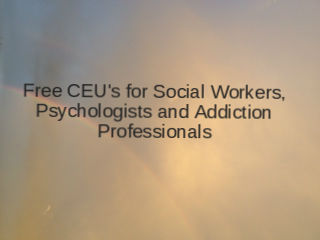
A lot of people don’t feel OK to talk about it but many dread the holidays. This is particularly the case if you may have a problem with depression or substance use. However, the many expectations associated with the holidays can affect anyone.
I have found that the underlying cause of holiday blues is expectations based upon past experiences and present disappointments. These can include:
- Reminders of difficult experiences during the holidays with family and/or friends
- Expectations of others’ generosity
- Expectations of closer relationships with others (how lonely or isolated one may be during the year is much more apparent at this time)
- Financial strain which results from spending resources which one doesn’t have or disappointment about not being able to buy presents for others
Getting through the season, or better yet, actually enjoying this time is dependent upon you being proactive not reactive. Taking responsibility for your mood during the holidays is as simple as implementing some strategies. This involves taking some time to think things through; each person has unique triggers which affect their mood. The following are some strategies that have worked for others:
- Focus on those times that you had a positive experience of the holidays. Examine what factors made that time enjoyable and try to implement some of those things this year.
- Plan a vacation with friends and/or family over the Christmas holiday.
- Create your own tradition whether it be religious or spiritual. It could also be a ritual of some kind. Make the holiday come alive to YOU.
- Volunteer at a homeless shelter, food bank, senior center, etc.
- Begin a gratitude practice in November and stay with it over the holidays. Use this time as a period of preparation for changes that you want to make for the new year.
- Reach out to others as you would like them to reach out to you, i.e., send cards, make contact with 1 or 2 people that you have lost touch with, or do something nice for a friend.
- Offer your services to friends or family as a gift. This could include watering their plants when they are on vacation, running errands, cooking them a meal, cleaning their house or manicuring their garden.
- Keep track of your alcohol and/or drug use. During the holidays you may be tempted to drink or use drugs more but this can have a negative effect on your mood. This is a simple way to realistically see how and when you use and very often can help you to cut down.
I hope these suggestions are helpful in adding to your enjoyment of this time of year. Feel free to add other suggestions that we all may benefit from. Dare I say, happy holidays!
DISCLAIMER
This information is for educational purposes only and should not in any way be considered a substitute for professional help. If you feel that you need immediate assistance please call your local psychiatric emergency services.
